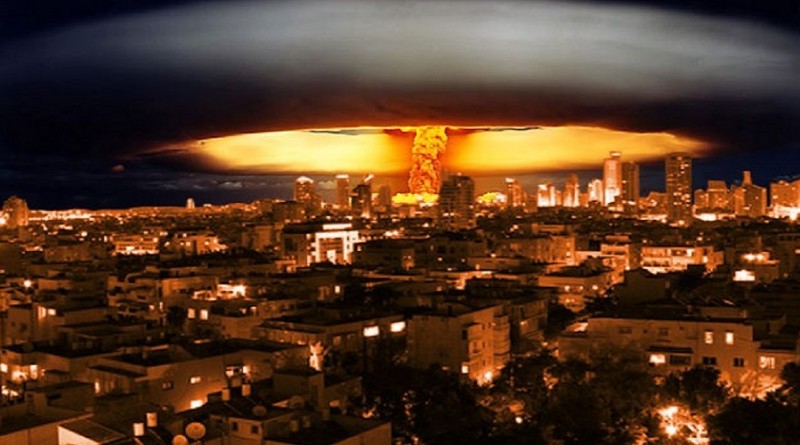James Robbins: World War III in Syria?

Peace in our time in Syria? Not even close. Last Thursday, international negotiators meeting in Germany announced that they had reached what was described as “an agreement toward halting hostilities.” Not a ceasefire, not an armistice, but a deal to make another deal to possibly stop the fighting. “I’m pleased to say that as a result today in Munich,” Secretary of State John Kerry said at the time, “we believe we have made progress on both the humanitarian front and the cessation of hostilities front … to be able to change the daily lives of the Syrian people.” Note to Kerry: Try not to say “Munich” when announcing a peace deal, especially one doomed to fail.
The fact that this non-deal was considered a major sign of progress reflects the low expectations of the effort. That fighting has continued unabated comes as no surprise. Russian-backed forces are doing a lot more to “change the daily lives of the Syrian people” than the Munich peace talkers. This underlines the fundamental disconnect that dooms the talks: One side is looking for an agreement, the other side wants to win. To paraphrase former presidential advisor John P. Roche, the Russians view negotiations as a weapons system.
Words on paper don’t beat facts on the ground. Russian-backed Syrian and militia forces have pushed to the gates of the rebel stronghold of Aleppo. If it falls, the U.S.-backed insurgency will be on its last legs. U.S. negotiators are desperate to redirect Russia’s attention to the threat posed by the Islamic State group in eastern Syria, contending that Moscow has showed bad faith by saying it was intervening to fight terrorism but focusing most of its effort on the anti-Assad rebels. Maybe soon Kerry will catch on to the fact that when the Russians say “terrorists,” they mean not just the Islamic State group but also the U.S.-backed insurgents fighting the Assad regime. We can call them freedom fighters all we want, and many of them are in fact fighting for freedom. But the Kremlin – correctly – views them as threats to their ally in Damascus and responds accordingly.
President Obama is fond of insisting that we are not in a new Cold War, but Russia disagrees. On Saturday, Russian Prime Minister Dmitry Medvedev said that Western relations with Russia have “remained unfriendly and opaque. One could go as far as to say that we have slid back to a new Cold War.” And unlike the proxy war in Afghanistan in the 1980s, Moscow wants to win this one. Their proxies – Shia militias from Lebanon, Iran and Iraq – are outfighting ours. The militias know what the war is all about – terminating anti-Assad Sunni insurgents and the Islamic State group with extreme prejudice. And if they kill a few Kurds in the process, they are fine with that too.
The only apparent leverage on our side is the prospect of a Saudi-led Sunni Arab force moving into Syria. Last week, Saudi Arabia confirmed that it will be sending troops and jet fighters to Turkey to prepare for an intervention. Taking a page from Moscow’s playbook, Riyadh announced that the military action would be aimed at the Islamic State group. But the kingdom has previously said that the regime in Damascus should be removed “by force.” Once boots are on the ground, they can march in any direction.
Naturally, the Kremlin objects. “The Americans and our Arab partners must think hard about this – do they want a permanent war?” Medvedev said. “All sides must be forced to the negotiating table instead of sparking a new world war.” When the Russians start talking like this, you know you have their attention. Moscow temporarily stepped up anti-Islamic State strikes to undercut the Saudi rationale for intervening, but has not ramped back its efforts against other rebel groups.
For Russia and the Assad regime, it is a race against time to impose a solution by force before the conflict enters a new escalatory phase. If Saudi regular forces engage the Syrian army on the ground, we can dispense with euphemisms like proxy warfare and counterinsurgency and call it what it is: a general Mideast war between the Sunni countries and the Shias and their respective backers. It is a wretched testament to a failed U.S. Middle East strategy. And it will change the daily lives of a lot more people than just the Syrians.
James S. Robbins is senior fellow in national security affairs at the American Foreign Policy Council, and author of “The Real Custer: From Boy General to Tragic Hero.”


